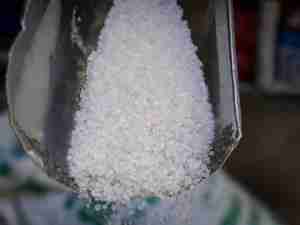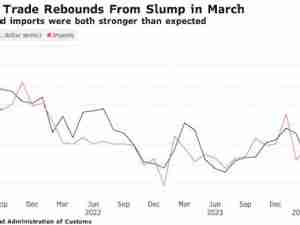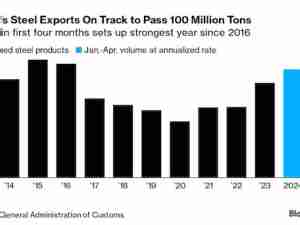Sainsbury CEO Coupe Warns of Brexit Pain as Profits Drop
By: Sam Chambers | Nov 09 2017 at 05:43 AM | International Trade
J Sainsbury Plc Chief Executive Officer Mike Coupe warned over the consequences of the U.K. leaving the European Union without a trade arrangement, as the retailer reported a drop in first-half profit that was in part driven by Brexit.
“There is a very straightforward fact which is that thousands and thousands of lorries cross the channel carrying food every day,” Coupe said in an interview on Bloomberg Radio. “It’s inconceivable that there isn’t some kind of arrangement put in place. Our wish would be for unencumbered trade relations to remain.”
Sainsbury shares fell as much as 3.7 percent to their lowest level this year in London trading Thursday. The stock is down more than 8 percent this year.
The London-based company has been one of the most outspoken retailers over the potential damage that a disorderly Brexit would do to its business. With the British Retail Consortium warning of backlogs at the country’s ports if the U.K. leaves the EU without a deal, executives are breaking their silence on the issue.
Sainsbury’s stance has drawn the ire of JD Wetherspoon Plc Chairman Tim Martin, a vocal Brexit supporter, who on Wednesday dismissed the company’s claims that food prices would rise if the U.K. left the bloc without a trade deal as “completely untrue.” Martin advocates the U.K. scrapping tariffs on food imported from outside the EU.
Sainsbury’s underlying pretax profit fell 9 percent to 251 million pounds ($330 million), the London-based grocer said in a statement Thursday. Analysts had estimated a drop of 11 percent to 246 million pounds. Sainsbury has been unable to pass on the full impact of rising food prices sparked by last year’s Brexit induced decline in sterling. Marks & Spencer Group Plc on Wednesday scaled back food-store openings and lowered its profit forecasts for the same reason.
Excluding fuel, retail same-store sales growth slowed to 0.6 percent in the second quarter from 2.3 percent in the first quarter. Sales were weaker in Sainsbury’s core grocery business, as well as across its general merchandise and clothing operations.
The slowdown is “concerning” because Sainsbury needs healthy revenue to fully capture the 160 million pounds of synergies it’s targeting from its acquisition of general-merchandise retailer Argos, Shore Capital analyst Clive Black said by email.
Sainsbury is far from the only retailer to be caught in a slowdown amid a squeeze on Britons’ disposable incomes. Cycling retailer Halfords Group Plc on Thursday reported first-half like-for-like retail sales growth of 1.9 percent, indicating a recent slowdown because growth was 3.5 percent in the first 20 weeks of the year.
The updates will add to fears over the health of the retail sector after downbeat assessments of recent trading from Next Plc Chief Executive Officer Simon Wolfson and Associated British Foods Plc’s Primark.
Sainsbury said it will deliver 540 million pounds of cost savings in the three years ending April 2018, which is 40 million pounds above its prior target.









